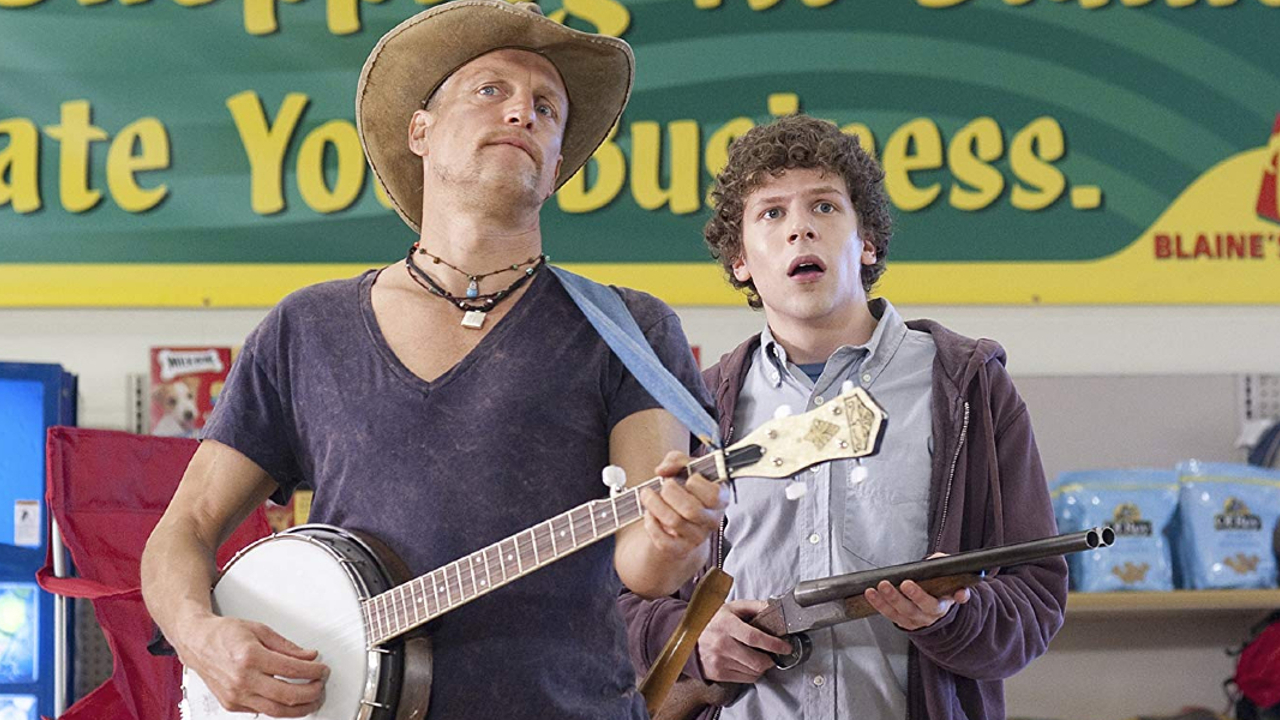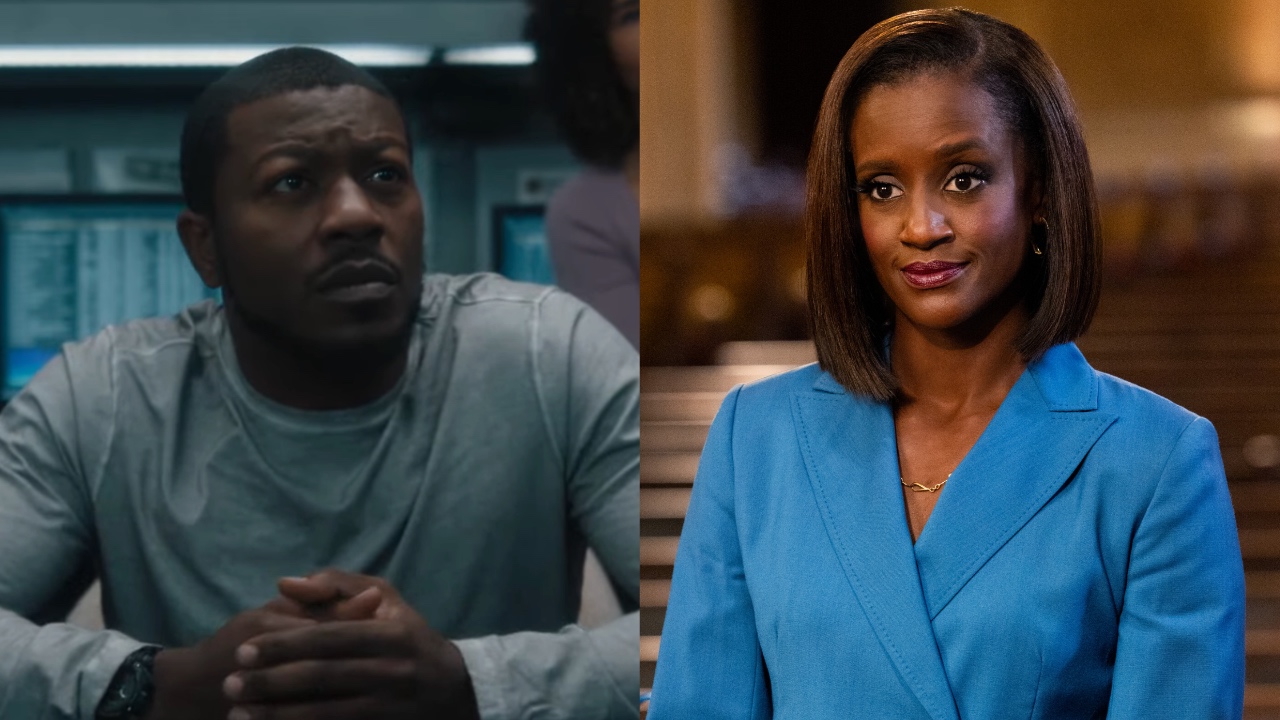Exclusive Interview: Zombieland Director Ruben Fleischer

When you make your feature directorial debut for a major studio, you'd think you'd want to play it safe, make an easy drama or a broad comedy, spend your time mastering camera techniques rather than going for something flashy. But then you wouldn't be Ruben Fleischer, the former video game director who knocks it out of the park on his first try, the raucous horror comedy Zombieland. Using lots of slo-mo and repeated "zombie survival rules" popping up on the screen and some killer zombie action scenes, Fleischer makes this kind of debut that pretty much demands we all stick around to see what we can do next.
As dry and low-key in person as his movie is outrageous, Fleischer told me about his role in the writing process (alongside screenwriters Paul Wernick and Rhett Reese), how to get Abigail Breslin and Woody Harrelson talking about Hannah Montana, and his response to the zombie purists who complain about the beasts in his movie. There's one spoiler-ish answer that I've included right at the bottom, though if you've ever seen a zombie movie, it probably won't be much of a surprise. I also talked to Fleischer about the cameo in the movie, which I wouldn't dare spoil for anyone before they've had a chance to see it; that portion of the interview will run next Monday, so come back for it!
When the script went from being a TV show to a movie, were you part of developing it?
They developed it as a TV show, and then they developed it as a TV movie to launch the series. The TV movie was deemed too expensive for television, so the producer brought it to Sony to make a movie out of ti. So the script that I first read and that I was brought on for was this television movie script. Part of how I got the job, I think, is because it didn't have a natural ending, because it was going to be a television show. What I brought to it was the idea of giving the movie a destination, like every good road movie should have. In Vacation they're going to Wally World. Wally World as Pacific Playland, they're big reference points. It was my idea to have it be the little girl's dream to go to Pacific Playland, and that be the end point. Have it culminate in a giant zombie killing battle in an amusement park was what I pitched.
I assume you've got something coming up.
No, I don't. It's all open. I have to figure out what I'm going to do next. The movie hasn't even come out yet.
The press conference with Woody and Jesse earlier was the most sarcastic press conference I've ever seen.
Your Daily Blend of Entertainment News
That's their vibe. I think they just try to make each other laugh. For people who don't know their dynamic, it might be a little jarring. But they make me laugh. I was cracking up the whole time.
The character of Little Rock is interesting in a zombie movie. Was it always written for someone so young? Did you have any trepidation?
Not when it was [Abigail Breslin]. The character was always scripted as being a young girl. We wanted her to be innocent, so she could believe in the possibility that there wouldn't be zombies in Pacific Playland. When we were casting it, the dream was always to get Abigail Breslin to do it, but we auditioned other people because we never believed we would get Abigail Breslin. Somehow, I think just because she really liked the script and she wanted to do something slightly out of what she's been doing, I think she was excited to do this. Hopefully this delivers on what she was looking for from it.
She gets one of the biggest laugh lines in the movie, the Hannah Montana line.
Which was her improv. She completely came up on her own, because she's obsessed with Hannah Montana. There's 15 minutes of her telling every episode from beginning to end. We could have cut literally 10 minutes of hilarious interaction between [Abigail and Woody Harrelson]. And that Willie Nelson line was Woody's rebuttal to her entire diatribe.
How much of what we see in the movie is improv?
There's a fair bit of it. At least one or two liens in every scene, and often some of the biggest laughs. When they first meet and [Jesse] said "Oh, you almost knocked over your alcohol with your knife," that was his improv. Tossing his drink out the window. That was an improv, "One and done, I always say, or I said that once." At least one line in every scene. Woody has a bunch of really funny improvs. The girls a little bit less so, because that's not the relationship of their characters. They had more of the storytelling to do, whereas the guys are more just hanging out together and being silly.
You use a lot of slo-mo in the action. How'd you make that choice?
There's not so much of it in the action, other than that action sequence. I got into the opening credits idea, and I wanted them not to just stand alone, I wanted them to be a theme throughout. I have a music video background> I think any opportunity you can to employ some visual technique, go for it. I didn't want to do too much of the ramping stuff that Zack Snyder did in 300. That stuff looks awesome, but that's kind of his signature.
How did you decide to deal with the scarier parts of the story?
Honestly I wish it was a little scarier. Because I'm not a horror guy, I'm a comedy guy, I didn't fully deliver on the horror element. I think it actually helps the film, because it won't keep people away, the people who aren't horror fans. Hopefully the zombie fans will still like it.
How much did you focus on the rules of zombies-- fast vs. slow, how to kill them, etc.?
I think we were pretty clear. We definitely went with the fast zombies, the viral zombies, like from 28 Days Later. Our zombies you don't have to kill by shooting in the head. They're not undead. They don't come back from the grave. They're people that have become infected as opposed to people who have died and supernaturally risen from the grave. Zombie purists don't even call our zombies zombies, because to be a zombie you have to be undead. That's something zombie purists can fight about for years and years to come.
Do you think it could ever go full circle and be a TV show?
I think it would be an amazing show. I would watch it. I love TV. I just don't know how achievable it will be. When they were originally intending to do it, it would be too expensive.
This one doesn't focus on zombies as allegory as much. Do you find an allegorical element?
Not really. We tried to base it on real life anxieties about food source contamination and pandemics, like avian flu and swine flu. We tried to keep it real, but that's not allegorical. There's not a lot of social commentary.
You don't tie things up at the end with regard to the zombies. How did you decide to do that?
I don't think you can. Most zombie movies don't end that way. The difference for ours is that no one dies. Traditionally in zombie movies, one of the main characters dies. I love the misdirect when Woody goes into the [games booth]. When you see him after he's blowing his guns, I think that's a satisfying thing. I love the possibility that there might be another movie. It would be fun to see what these guys get up to next.
Staff Writer at CinemaBlend

